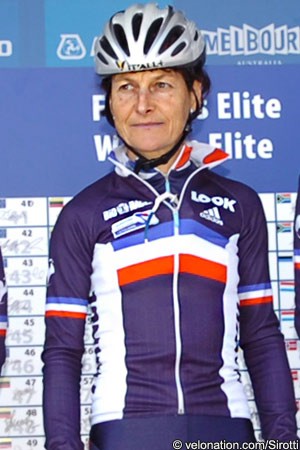FFC president Lappartient speaks of ‘administrative problems’ of AFLD
 One day before the deadline to lodge an appeal in the Longo case, French Cycling Federation (FFC) president David Lappartient has indicated that the action will not take place.
One day before the deadline to lodge an appeal in the Longo case, French Cycling Federation (FFC) president David Lappartient has indicated that the action will not take place.
Longo committed three whereabouts violations but her lawyers successfully argued last month that she wasn’t part of the testing pool at the time, and therefore shouldn’t be sanctioned. Under a French law introduced on April 14th of last year, athletes in the testing pool need to have their place there renewed annually; the FFC’s disciplinary commission ruled that the AFLD did not do this, giving Longo the scope to avoid sanction.
This appears to contradict the WADA Code, which suggests that athletes at a top international level should typically be tested. However an Agency spokesman told VeloNation recently that the national body is typically the one to decide who should be tested.
Despite being 53 years of age, Longo has regularly competed in cycling’s world championships in recent seasons, and is one of the favourites to make the French team for next year’s Olympic Games.
It seems inconceivable that she should not be tested, but Lappartient feels she has French law on her side. “There are real legal arguments today in favour of Jeannie Longo, particularly of administrative problems,” he told RMC Sport. “We are a country of law. Today it seems that the athlete has not been put in the target group in the usual way. We must take all the consequences of that. I exercise my right to appeal very rarely and when I do it’s usually to increase a sentence. Here there is no reason to do that. I trust our disciplinary bodies.”
Lappartient didn’t address the claim by former US rider Joe Papp that he had sold EPO to Longo’s husband and coach Patrice Ciprelli, who allegedly told Papp it was for his wife.
It remains to be seen how the AFLD will proceed, and if the FFC intends to investigate the latter claims.